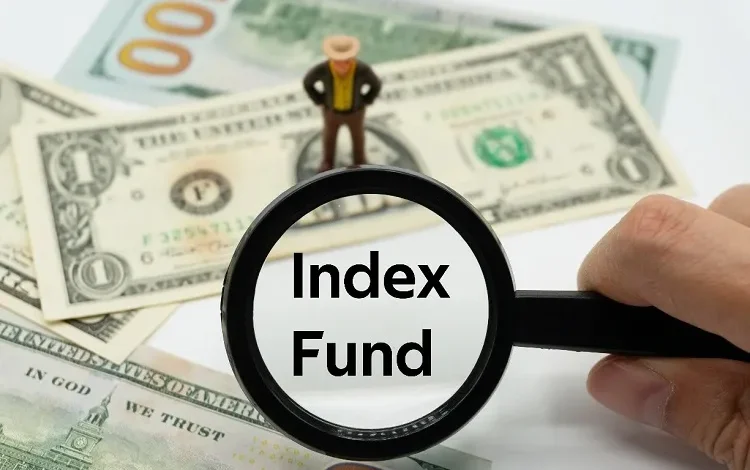
His methodical, patient, and value-driven approach to investing has yielded results that have consistently outperformed the market for decades.
“When trillions of dollars are managed by Wall Streeters charging high fees, it will usually be the managers who reap outsized profits, not the clients,” Buffett stated in a 2016 interview. interview. letter to shareholders. Low-cost index funds are the best option for both big and small investors.

Important Takeaways
- Mutual funds or exchange-traded funds (ETFs) that mimic the performance of a specific index in their portfolio are known as index funds.
- In general, index funds have performed better than other mutual fund categories over the long run.
- Index funds also have low costs, tax benefits (they generate less taxable income), and low risk due to their high level of diversification.
An index fund: what is it?
An index fund is a type of mutual fund or exchange-traded fund (ETF) that owns all (or a representative sample) of the securities in a specific index with the goal of closely replicating the performance of that benchmark. Although the S&P 500 is perhaps the most well-known, there are indexes—and index funds—for practically every market and investment approach you can think of. You can purchase index funds directly from an index-fund provider like Fidelity or through your brokerage account.
You can access a variety of securities in a single, easy, and reasonably priced transaction by investing in an index fund. Some index funds provide exposure to thousands of securities in a single fund through extensive diversification, which lowers your overall risk. By investing in numerous index funds that track different indexes, you can create a portfolio that matches your preferred asset allocation. You might, for example, put 60% of your cash into stock index funds and 40% into bond index funds.
What Are the Benefits of Index Funds?
The fact that index funds have continuously outperformed other fund types in terms of total return is their most evident benefit.
One of the main reasons is that, due to their passive management, they typically have far lower management fees than other funds. The index fund’s portfolio simply replicates that of its specified index, rather than having a manager actively trading and a research staff evaluating stocks and offering recommendations.
Index funds also have lower transaction costs because they retain investments until the index itself changes, which isn’t very often. Particularly in the long run, such reduced expenses might have a significant impact on your profits.
In his 2014 shareholder letter, Buffett stated that “the unsophisticated index-fund investor who just sits tight for decades has long outperformed the large institutional investors, viewed as a group.” Fees have been a significant factor. Many organizations pay consultants large sums of money, and these consultants then suggest managers who charge exorbitant fees. And it’s a silly game.
What Are Index Funds’ Drawbacks?
No investment is perfect, and index funds are no exception. By their very nature, they have a drawback: a portfolio that rises with its index also falls with it. For instance, you will profit while the market is rising if you own a fund that tracks the S&P 500, but you will be at risk when it falls. The management of an actively managed fund, on the other hand, may anticipate a market downturn and modify or even liquidate the positions in the portfolio to protect it.
It’s simple to complain about costs for actively managed funds. However, a competent investment manager’s skills can occasionally outperform the market in addition to protecting a portfolio. Few managers, meanwhile, have been able to maintain that level of performance year after year.
Diversification has two sides as well. Indeed, it reduces risk and smoothes out volatility, but as is so frequently the case, lowering the downside also restricts the upside. In contrast to a more selective portfolio in another fund, several underperforming equities may pull down the broad-based basket of stocks in an index fund.
In conclusion
Because of its low expenses, ease of use, and reliable performance, index fund investment is a well-liked and successful long-term investing approach. Despite the dangers, index funds’ diversification can help lower volatility and yield consistent returns over time. Index funds can be a useful component of your portfolio, regardless of your level of experience, particularly if you’re concentrating on long-term growth.
FAQs
1. What is an index fund?
An index fund is a kind of investment vehicle that mimics the performance of a particular stock market index, like the Dow Jones Industrial Average or the S&P 500. These funds are frequently set up as mutual funds or exchange-traded funds (ETFs). By holding all (or a representative sample) of the assets in a particular market index, index funds merely track the index’s overall performance rather than attempting to outperform it.
2. How do index funds operate?
In order to replicate the performance of a certain index, index funds purchase and hold all of the stocks or bonds included in that index. For instance, an index fund that tracks the S&P 500 will make investments in each of the index’s 500 businesses. Instead of actively selecting stocks or bonds, the fund management seeks to replicate the performance of the index as precisely as possible.
3. What dangers come with investing in index funds?
Index funds are nonetheless vulnerable to market risk even if they are typically less hazardous than individual stocks. This implies that the index fund’s value will decrease if the market or index it tracks experiences a downturn. Furthermore, because index funds must adhere to a certain index, even in the event that some of the stocks or bonds in the index underperform, they lack flexibility.
4. What is the minimum amount required to invest in an index fund?
Index funds may have different minimum investment requirements. While some funds may demand several thousand dollars to get started, others may have minimums as low as $100. Fractional shares, which enable investors to start with smaller amounts by buying portions of shares in the index fund, are now offered by many brokerage houses.



